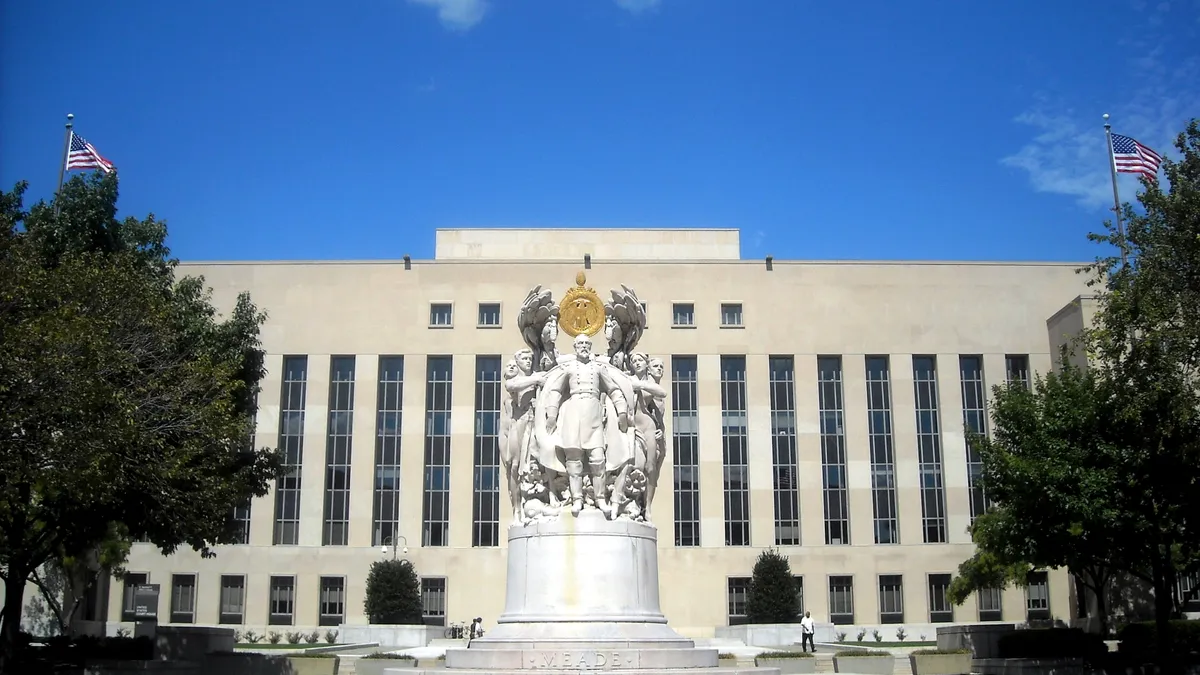Dive Brief:
- The U.S. Court of Appeals for the District of Columbia Circuit has ruled the U.S. Environmental Protection Agency must begin enforcing methane leak restrictions at oil and gas drilling sites, rather than allowing the agency to delay implementation.
- In April, EPA announced it would reconsider the limits on methane emissions, calling for a 90-day delay of a June 3 compliance date. The rule could reduce methane emissions equivalent to 11 million metric tons of carbon dioxide pollution, the agency predicted before President Trump took office.
- The EPA argued the Obama administration did not allow sufficient comment on some portions of the rule, but the court rejected that claim, noting some stakeholder comments were directly incorporated into the final version. The agency may still issue a new rule to revise methane standards, but will have to enforce the Obama-era rule as new language is crafted.
Dive Insight:
In a blow to the White House's efforts to roll back Obama-era environmental protections and rules, the Court's decision means about 11,000 wells drilled since 2015 will now face additional scrutiny.
The ruling is also an example of the difficulty Trump may face in undoing some regulations.
"Industry groups had ample opportunity to comment," the court wrote in its 2-1 decision. "In several instances the agency incorporated those comments directly into the final rule."
Judge David Tatel and Judge Robert Wilkins, both appointed by Democrats, ruled in favor of the Environmental Defense Fund, which requested the review. Republican-appointed Judge Janice Brown dissented.
The 2016 rules were part of former President Obama's efforts to cut methane emissions 40-45% from 2012 levels by 2025.
Under the former administration, EPA estimated the rules will reduce methane emissions by 510,000 short tons in 2025 — the equivalent of reducing 11 million metric tons of carbon dioxide. The agency estimated the pricetag for compliance costs will range $420 million to about $530 million in 2025, but also said the rule would yield climate benefits of $690 million, resulting in a $160 million net benefit.
In her dissent, Brown argued echoed arguments from the EPA, saying the court could not review the delay because it was not a final decision.
"In contrast to our precedent, the Court’s opinion concludes a particular administrative proceeding has innumerable final agency actions, including intermediate decisions. No authority supports this proposition," she wrote.
But the court's majority said a delay to the regulation's effective date is "tantamount to amending or revoking a rule" — a lengthy process that includes a public comment period. While EPA can seek to revise the methane standards, it must do so while enforcing the rule already on the books.
That ruling, the Post notes, could have consequences on a variety of other Obama regulatory initiatives put on hold by the Trump administration. The Bureau of Land Management, for instance, proposed delaying compliance deadlines for another rule governing gas venting and flaring on federal and tribal lands last month.















